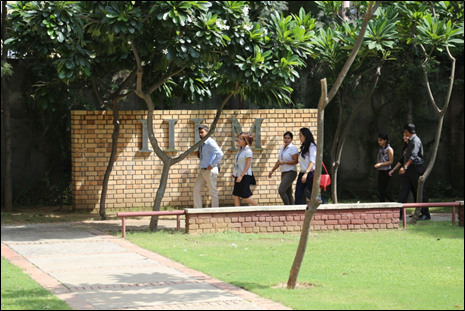Taking an MBA course is a huge investment both in terms of time and money, for some of us it is even the highest in our entire lives. So what lures the large number of aspirants annually flocking to these colleges across the globe? Well, we’d say it is the returns reaped on said investment. Most B-schools promise new areas of expertise and a world full of opportunities. But, while professional advancement and career development sound well, not all schools can fit your bill. A proper scrutiny will tell you how even the best in the charts may actually be of no use. A better understanding of why you want to pursue the course and some clarity on where you want it to take you can help in zeroing out on the right one.
We have compiled few things to keep in mind:
- Approval: The world is seeing a rapid rise in the number of MBA aspirants and growing well in step are colleges offering the course. But not all offer courses approved by All India Council of Technical Education, the governing body behind quality controls in Indian education. Some of the best colleges in India such as Institute for Integrated Learning in Management (IILM), provide courses approved by the apex body which are in sync with the current requirements.
- Affiliation: An institute can either be affiliated to a university or be autonomous, both entail their own pros and cons. For instance, affiliation to a traditional university can bring better structural organisation and lower fee to the table. On the other hand, an autonomous institute has the flexibility to change the syllabi as per the dynamic needs of the business world.
- Faculty: According to us, this is the deal breaker. There is no substitute to distinguished faculty members providing direct guidance to students, no matter what the ranking. From understanding the diverse needs of an MBA aspirant to paving his way to bigger and better opportunities, good faculty does it all. They are the ultimate drivers of growth. Another important parameter that must be factored in is the ratio of full time to visiting members, which by the way should be high.
- Fee: Once again, we come to the fundamental question of returns on investment. We suggest looking into the training and placement record of your shortlisted college in lieu of its fee. Our take is that it is not a make or break criteria if the ROI is worth it. You can always loan it from banks on easy terms and that should do well in terms of covering your tuition and sometimes even operating expenses.
- Infrastructure: We suggest you visit the campus at least once. You should feel safe and comfortable and there should be good classroom, library, labs, and hostel facilities. We’d give more stars to campuses that have a decent environment to support rigorous studies.
- Placement: Good placements for us mean students clinching good packages, desired job profiles. A look at the college placement record should tell you about company profiles, sectors of recruitment, average salary and so on. Keep in mind that while numbers matter, so does quality. Therefore, check out the reputation of companies visiting the college and we said- job profiles that are being offered by them.
- International exposure: Colleges engaging in exchange programmes and offering international internships not just allow you to widen your perspective but also open up a gamut of new opportunities abroad. You would be glad to know that a number of colleges providing MBA courses in Delhi have taken the same route in order to give students a global outlook.
- Location: If your selected college is closer to an industry or education hub or some policy making body, nothing better! This is precisely one of the reasons students prefer colleges in metros.
So, keep these points in mind while choosing an institute for your MBA course.

